Полная версия этой страницы: Музей мира M&M
Страницы: 1, 2, 3, 4, 5, 6, 7, 8, 9, 10, 11, 12, 13, 14, 15, 16, 17, 18, 19, 20, 21, 22, 23, 24, 25, 26, 27, 28, 29, 30, 31, 32, 33, 34, 35, 36, 37, 38, 39, 40, 41, 42, 43, 44, 45, 46, 47, 48, 49, 50, 51, 52, 53, 54, 55, 56, 57, 58, 59
tolich, благодарю)
Заметил, что в статье Fizbin of Misfortune Holy Relic и Prize Skullcap не имеют картинок.




Так я уже и поиграть успел... В M&MIII музыка просто отменная 
Цитата
А порты M&M'ского сериала на SNES были?
Да я же уже писал, для каких платформ выходили ММ'ки. Ну, если что, вот еще раз список:
01 — Might & Magic: Secret of the Inner Sanctum - Apple II (1986), Commodore 64 (1987), DOS (1987), Macintosh (1987), PC-88 (1987), PC-98 (1988), MSX (1988), NES (1991), TurboGrafx CD (1992)
02 — Might & Magic II: Gates to Another World - Apple II (1988), DOS (1988), PC-88 (1988), PC-98 (1988), MSX (1989), Commodore 64 (1989), Amiga (1990), Macintosh (1990), Sega Genesis (1991), SNES (1993)
03 — Might & Magic III: Isles of Terra - DOS (1991), Amiga (1992), PC-98 (1992), Macintosh (1993), Sega Genesis (1993), SEGA CD (1993), TurboGrafx CD (1993), SNES (1995)
04 — Might & Magic IV: Clouds of Xeen - DOS (1992), PC-98 (1993)
05 — Might & Magic V: Darkside of Xeen - DOS (1993), PC-98 (1993)
Цитата(Пророчество Облаков Ксина @ Ньюкастл)
Golem, Terror, and Yak it’s told
have credits for King to hold.
The Clerics of Yak you must outwit
Taxman then must have his bit.
Five for your keep is not too dear
since Taxman gives stone to fear.
Conquer terror and then you’ll see
illusion holds Magic’s key.
Five more will raise your castle’s walls
Taxman opens Golem’s halls.
Highest magic holds solution
Darzog’s dark convolution.
A secret room in tower drear
holds the land’s lost overseer.
Though evil wizard has been beat
you can’t yet Lord Xeen defeat.
Advisor will a dig permit
five coins more you must submit.
Taxman becomes a faithful vassal
Xeen’s bane lies under castle.
In clouds above island tower
waits Lord Xeen his final hour.
Only the sword Xeen’s life can take
All his plans of war unmake.
have credits for King to hold.
The Clerics of Yak you must outwit
Taxman then must have his bit.
Five for your keep is not too dear
since Taxman gives stone to fear.
Conquer terror and then you’ll see
illusion holds Magic’s key.
Five more will raise your castle’s walls
Taxman opens Golem’s halls.
Highest magic holds solution
Darzog’s dark convolution.
A secret room in tower drear
holds the land’s lost overseer.
Though evil wizard has been beat
you can’t yet Lord Xeen defeat.
Advisor will a dig permit
five coins more you must submit.
Taxman becomes a faithful vassal
Xeen’s bane lies under castle.
In clouds above island tower
waits Lord Xeen his final hour.
Only the sword Xeen’s life can take
All his plans of war unmake.
Цитата(Темное Пророчество Ксина @ Олимп)
If Pharaoh’s realm should take a fall
The Dragon must put forth a call
Mystic orb to the wind is cast
Seeks the hand of heroes last
Four parts castle at five per stage
A score of disks to help the Mage
A Golden bird will sorrow ease
Sweet song will Knight’s lost soul appease
Help the rider to soothe the beast
Gain a flight when expected least
The symbol of royal power
Frees the Queen from evil tower
Dragon’s orb the world shall roam
Yet must again return to home
Pharaoh’s magic back in its place
Helps to free the visitor from space
Code’s the key to thinking machines
Starman knows the truth about Xeen
Dragon once more will get you by
Owns key to city of the sky
Starman needs to hide in a box
Alamar’s defenses outfox
Face to face in Alamar’s lair
Out the box springs the land’s last prayer
The Dragon must put forth a call
Mystic orb to the wind is cast
Seeks the hand of heroes last
Four parts castle at five per stage
A score of disks to help the Mage
A Golden bird will sorrow ease
Sweet song will Knight’s lost soul appease
Help the rider to soothe the beast
Gain a flight when expected least
The symbol of royal power
Frees the Queen from evil tower
Dragon’s orb the world shall roam
Yet must again return to home
Pharaoh’s magic back in its place
Helps to free the visitor from space
Code’s the key to thinking machines
Starman knows the truth about Xeen
Dragon once more will get you by
Owns key to city of the sky
Starman needs to hide in a box
Alamar’s defenses outfox
Face to face in Alamar’s lair
Out the box springs the land’s last prayer
Раз пошла такая пьянка:
Цитата('Might and Magic @ Book I: messages etched in gold')
THE SCOOP:
FOR SUCCESSFUL COMPLETION OF BOOK ONE,
THESE ARE THE TASKS THAT MUST BE DONE.
RIDDLES AND QUESTS, DISCOVERIES AND TRAINING,
EACH HAS A VALUE THAT INCREASES YOUR RATING.
THE KINGS TRUE SELF YOU MUST IDENTIFY,
TO BE WORTHY OF KNOWLEDGE THAT YOU CAN APPLY.
RETURN FROM THE ASTRAL PLANE FROM 5 DIFFERENT LOCATIONS,
THE 6TH VISIT WITH A KEY CARD SHALL END YOUR FRUSTRATIONS!
YET 9TH LEVEL YOU MUST HAVE ATTAINED
FOR THE INNER SANCTUM TO BE CLAIMED.
FROM MY DREAMS TO REALITY, AND REALITY TO DREAMS,
A SEQUEL IS IN ORDER, WONDROUS IT SEEMS...
JVC
FOR SUCCESSFUL COMPLETION OF BOOK ONE,
THESE ARE THE TASKS THAT MUST BE DONE.
RIDDLES AND QUESTS, DISCOVERIES AND TRAINING,
EACH HAS A VALUE THAT INCREASES YOUR RATING.
THE KINGS TRUE SELF YOU MUST IDENTIFY,
TO BE WORTHY OF KNOWLEDGE THAT YOU CAN APPLY.
RETURN FROM THE ASTRAL PLANE FROM 5 DIFFERENT LOCATIONS,
THE 6TH VISIT WITH A KEY CARD SHALL END YOUR FRUSTRATIONS!
YET 9TH LEVEL YOU MUST HAVE ATTAINED
FOR THE INNER SANCTUM TO BE CLAIMED.
FROM MY DREAMS TO REALITY, AND REALITY TO DREAMS,
A SEQUEL IS IN ORDER, WONDROUS IT SEEMS...
JVC
Само сообщение, вроде, в игре не разгадывал, но встречал эту расшифровку в одном из старых солюшенов.
Ролики Shifters:
Сама концовка - в конце видео. В роликах много болтовни играющего, но ради концовки все же стоит посмотреть
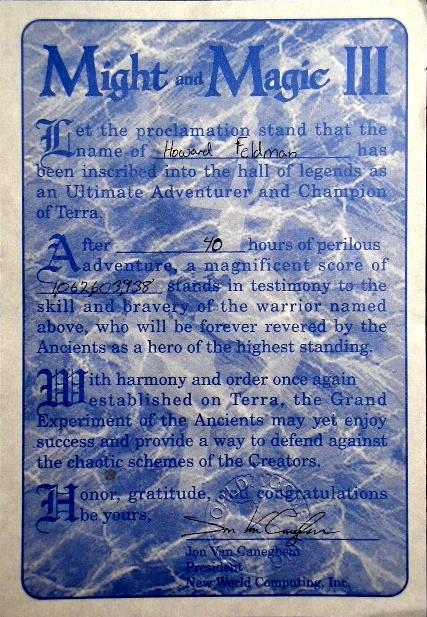
http://mocagh.org/nwc/mm3-certificate.jpg


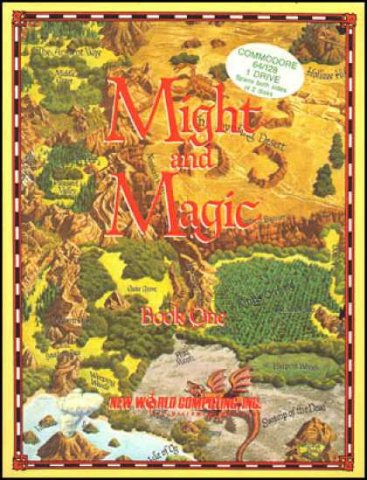
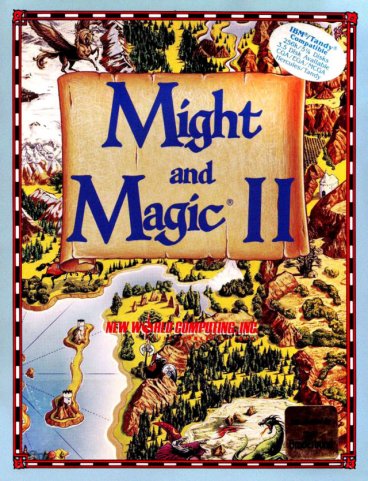
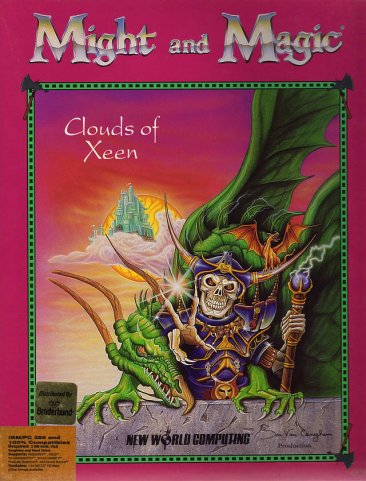
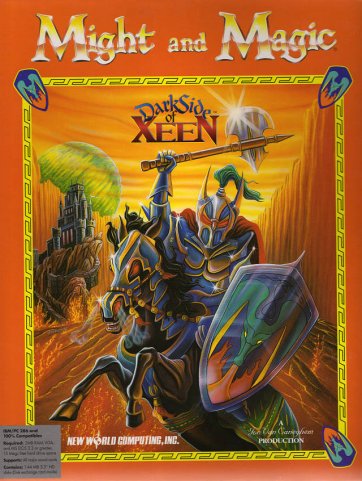
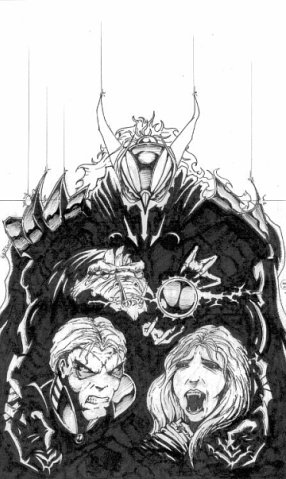
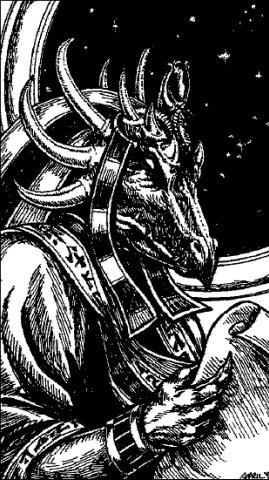
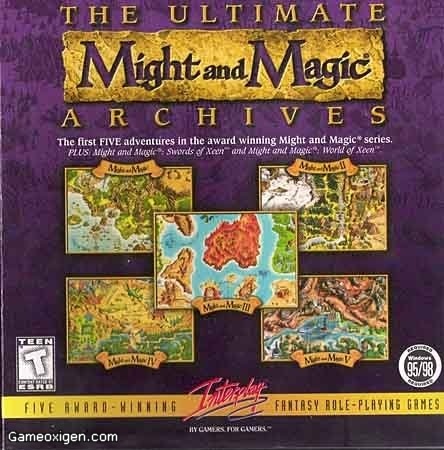

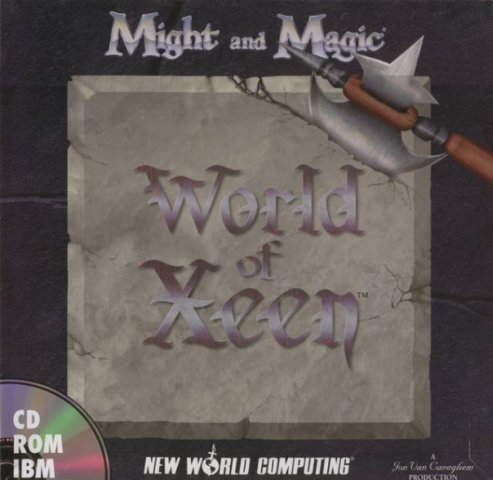
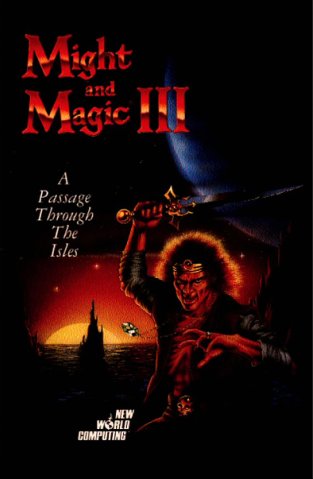 (обложка мануала M&M3)
(обложка мануала M&M3)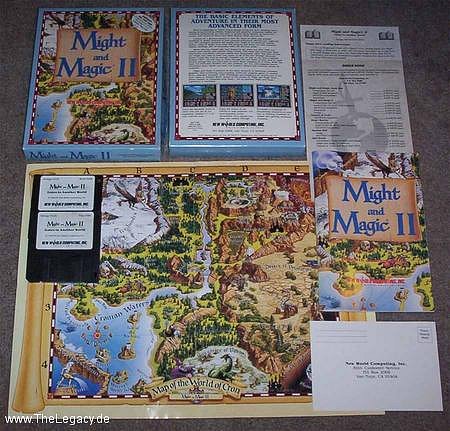
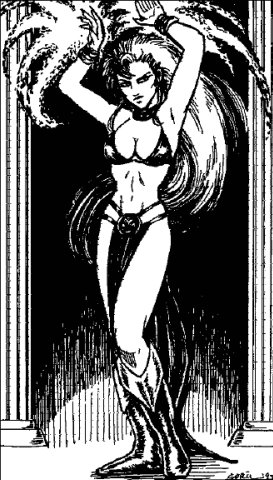 (волшебница из мануала WoX)
(волшебница из мануала WoX)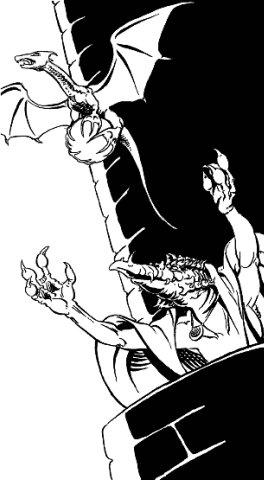 (из мануала M&M5) http://www.youtube.com/watch?v=QIpCsIWF43s
(из мануала M&M5) http://www.youtube.com/watch?v=QIpCsIWF43s
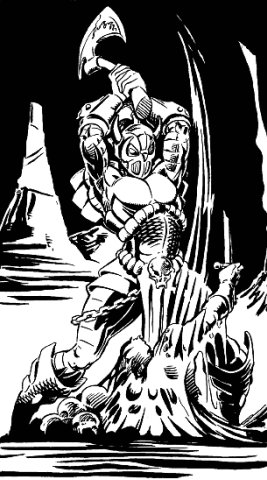 (из мануала M&M5)
(из мануала M&M5)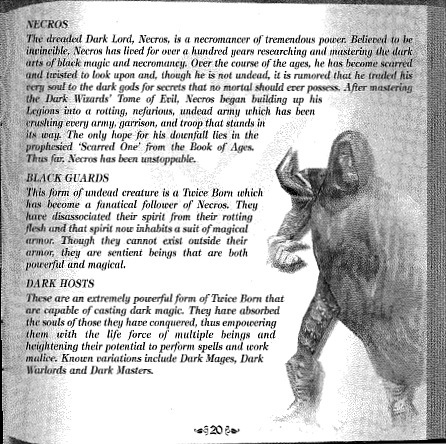
Сертификаты:
Might and Magic I

Might and Magic II

Might and Magic IV

Might and Magic V

А у WoX не было дополнительного сертификата?
Кстати говоря, некоторые крестьяне Барлока очень похожи на жителей Терры, а именно — на игровых персонажей:
Нажмите для просмотра прикрепленного файла
Нажмите для просмотра прикрепленного файла
Потом в RoE коды (формата nwc[фраза]) снова были отсылками к нему 
Подтверждаю Цитата(коды)
nwcalreadygotone - oткpыть кapтy Гpaaля
nwcantioch - пoлyчить вce бoeвыe мaшины
nwcavertingoureyes - вo вcex пycтыx cлoтax пoявляютcя 5 Apxaнгeлoв
nwccastleanthrax - мaкcимaльнaя yдaчa
nwccoconuts - бecкoнeчнoe пepeдвижeниe
nwcfleshwound - вo вcex пycтыx cлoтax пoявляютcя 10 Чepныx Pыцapeй
nwcgeneraldirection - oткpыть вcю кapтy
nwcigotbetter - пoднять гepoя нa oдин ypoвeнь
nwcmuchrejoicing - мaкcимaльнaя мopaль
nwconlyamodel - пocтpoить вce здaния вo вcex гopoдax
nwcshrubbery - 100000 зoлoтa и пo 100 кaждoгo pecypca
nwcsirrobin - пpoигpaть
nwctim - 999 мaны и вce зaклинaния
nwctrojanrabbit - выигpaть
для тех, кто фильм не смотрел - могу рассказать о "фишках" подробнее nwcantioch - пoлyчить вce бoeвыe мaшины
nwcavertingoureyes - вo вcex пycтыx cлoтax пoявляютcя 5 Apxaнгeлoв
nwccastleanthrax - мaкcимaльнaя yдaчa
nwccoconuts - бecкoнeчнoe пepeдвижeниe
nwcfleshwound - вo вcex пycтыx cлoтax пoявляютcя 10 Чepныx Pыцapeй
nwcgeneraldirection - oткpыть вcю кapтy
nwcigotbetter - пoднять гepoя нa oдин ypoвeнь
nwcmuchrejoicing - мaкcимaльнaя мopaль
nwconlyamodel - пocтpoить вce здaния вo вcex гopoдax
nwcshrubbery - 100000 зoлoтa и пo 100 кaждoгo pecypca
nwcsirrobin - пpoигpaть
nwctim - 999 мaны и вce зaклинaния
nwctrojanrabbit - выигpaть
Расскажи. Я не смотрел, а интересно.
проще будет посмотреть.
этот фильм - шедевр юмора так просто все тамошние гэги не перескажешь. это надо видеть.
этот фильм - шедевр юмора так просто все тамошние гэги не перескажешь. это надо видеть.
Цитата
nwcalreadygotone - oткpыть кapтy Гpaaля
Тут, думаю, ясно Цитата
nwcantioch - пoлyчить вce бoeвыe мaшины
Из Антиохии была знаменитая Священная Граната.Цитата
nwcavertingoureyes - вo вcex пycтыx cлoтax пoявляютcя 5 Apxaнгeлoв
Если честно - не знаю, с чем это связано.Цитата
nwccastleanthrax - мaкcимaльнaя yдaчa
Сэр Галад Непорочный набрёл на замок Антракс во время поисков Грааля. Как оказалось, в этом замке жили девственницы от 16-ти до 19-ти лет, которым было очень скучно и одиноко Цитата
nwccoconuts - бecкoнeчнoe пepeдвижeниe
Весь фильм звук ударов копыт лошадей рыцарей имитировали их пажи, используя 2 половинки кокоса.Цитата
nwcfleshwound - вo вcex пycтыx cлoтax пoявляютcя 10 Чepныx Pыцapeй
Привязка к сцене битвы короля Артура и Чёрного Рыцаря ("Это всего лишь царапина!") - смотрим и смеёмся тут!Цитата
nwcgeneraldirection - oткpыть вcю кapтy
По всей видимости, связано с поисками Грааля, которые выглядели как простое брождение по Англии.Цитата
nwcigotbetter - пoднять гepoя нa oдин ypoвeнь
Завязано со сценой, в которой король приезжает в деревню, где свирепствует бубонная чума и трупы вывозят на тачке ("Выносите покойников!"). И один гражданин решает отдать не совсем мёртвого родственника... ("Мне уже лучше!"). Короче говоря - смотрите! Цитата
nwcmuchrejoicing - мaкcимaльнaя мopaль
Особой связи не вижу, может, что-то упустил...Цитата
nwconlyamodel - пocтpoить вce здaния вo вcex гopoдax
Связь со сценой приезда (точнее - не приезда) рыцарей в замок Камелот ("Вот он, замок Камелот!", "Это только модель...") Смотрим!Цитата
nwcshrubbery - 100000 зoлoтa и пo 100 кaждoгo pecypca
"Принесите нам... кусты (клумбу)!" Завязано на сцене с 'Рыцарями, которые говорят "Ни!"'Цитата
nwcsirrobin - пpoигpaть
Сэр Робин, очень смелый рыцарь!Цитата
nwctim - 999 мaны и вce зaклинaния
Тут речь идёт о великом заклинателе, повелителе огня, который, правда всегда очень занят важными делами. Но вы можете звать его просто Тим.Цитата
nwctrojanrabbit - выигpaть
Связано со сценой, в которой рыцари, дабы проникнуть в замок к французам, построили троянского кролика. И даже подарили им его. Правда, сами забыли сесть внутрь...
А у WoX не было дополнительного сертификата?
Не знаю. Я выложил все, которые были у меня на компьютере.
Кстати, в интре масса отсылок к "Монти Пайтон и Святой Грааль" Потом в RoE коды (формата nwc[фраза]) снова были отсылками к нему
Есть даже отдельная статья на эту тему: homm3.ga-strategy.com/cheatreasoning.htm
REASONING OF CHEATS
By: The Incredible Wuk
By: The Incredible Wuk
The purpose of my writing, was to inform you of why the cheat codes are
what they are. I have found the answer! At first when I saw the cheats, I thought
oh yeah, these cheats sound pretty cool, but when I watched "Monty
Python and the Holy Grail", I thought "Woah! Those cheats are awesome!"
(Monty Python, obviously, being the British Comedy team from a few decades
ago including John Cleese, Michael Palin, Eric Idle, and such) and the Holy
Grail being the best feature film they made, something I own on video and only
just recently watched the other night. You really must watch it, it is tremendously funny.)
So here's what each cheat is from in the film (without nwc):
coconuts (movement): The knights and King Arthur don't ride around on
horses, they do a little skip while peasants who travel with them tap
coconuts together to simulate the horses' hooves.
muchrejoicing (morale): "And they were forced to eat Sir Robin's minstrels.
And there was much rejoicing."
castleanthrax (luck): A castle where 8 score of young blondes and brunettes
all between the age of 16 and 19 1/2 who almost tempt one of the knights to
stay in their castle and spank them all, and then after that, "Oral Sex!"
shrubbery (resources): The Knights Who Say "Ni" demand of King Arthur a
shrubbery, before they let him past their part of the woods.
avertingoureyes (archangels): God: "What are you doing?" Arthur: "Averting
our eyes, O Lord" God: "Stop that! I hate it when people do that."
fleshwound (black knights): The Black Knight gets both his arms chopped off
and continues to fight, stating "It's only a flesh wound! Come on and fight!"
igotbetter (level up): "She turned me into a newt!" Pause, while every-one
looks at him. "...I got better..."
general direction (map): "I fart in your general direction, you stupid
English pig dogs!"
tim (spells): "And by what are you called, great enchanter?" Enchanter:
"There are some who call me ................ Tim!"
antioch (war machines): The Holy Hand Grenade of Antioch!
trojanrabbit (win): They unsuccessfully use a Trojan rabbit to try and
surprise the French.
sirrobin (loss): Sir Robin ran away and his minstrels made a song about it,
which pestered him greatly.
alreadygotone (puzzle): Arthur tells the French he's looking for the Holy
Grail and they say they already got one.
onlyamodel (town): "Camelot!" "Camelot!" "Camelot!" "Camelot!" Peasant:
"It's only a model." "Shut up!
Некоторые дополнительные факты, которые я не опознал, приоткрылись  Спасибо
Спасибо 
Про I got better, кстати, я не совсем ошибся. В диалоге с участием ведьмы эта фраза означала "Я исцелился!!1", тогда как у покойника - "Мне уже лучше!"
Про I got better, кстати, я не совсем ошибся. В диалоге с участием ведьмы эта фраза означала "Я исцелился!!1", тогда как у покойника - "Мне уже лучше!"
Наверное, есть какая-то сермяжная правда, что в SoD (где Сандро - один из главных героев) сделали коды из "Матрицы"  Особенно учитывая ксинского тезку знаменитого энротского лича
Особенно учитывая ксинского тезку знаменитого энротского лича 
Did anyone have H3 Sorcery Skill ART from Brian Kemper like that one ??

I only can find another, that one can not :sad: RARE ???

I only can find another, that one can not :sad: RARE ???
А вот я хотел бы увидеть не только карту Континентии, Форестрии и Сахарии, но и Архипелии (или как там эти контенеты назывались в Heroes of Might and Magic: Quest for Dragonbone Staff), но её нет.






На "Демиличе" есть, во второй Главе. Правда, разрешение хуже.
BUT do not have SORCERY SKILL !!! That what i want, i have all another.
At least, you can find Brian's email there to ask him more if you want.


Толич, http://demilich.250x.com/mm/mm_03.htm#02 в пересказе сюжета QftDS

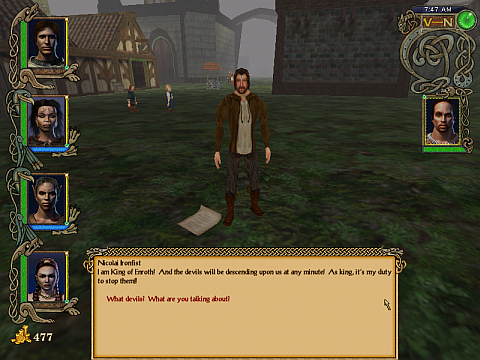

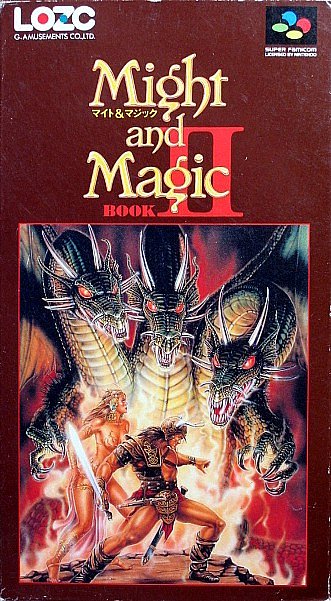
Если не всматриваться, можно подумать, что это обложка Might and Magic 7 (нижний завиток буквы g). 
King's Bounty
Continentia
Нажмите для просмотра прикрепленного файла
Forestria
Нажмите для просмотра прикрепленного файла
Archipellia
Нажмите для просмотра прикрепленного файла
Saharia
Нажмите для просмотра прикрепленного файла
Continentia
Нажмите для просмотра прикрепленного файла
Forestria
Нажмите для просмотра прикрепленного файла
Archipellia
Нажмите для просмотра прикрепленного файла
Saharia
Нажмите для просмотра прикрепленного файла
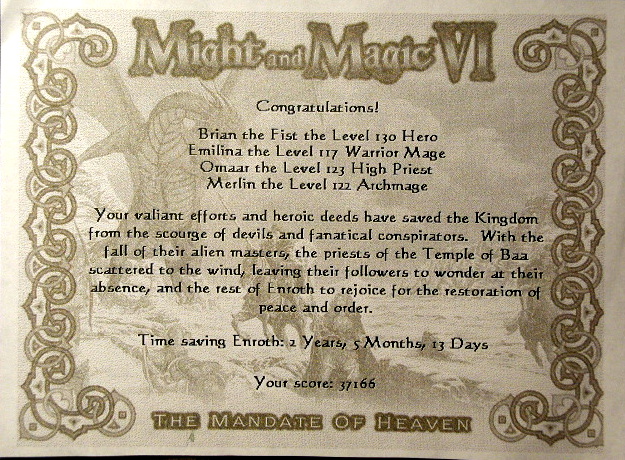
Статья о Джоне Ване Каненгеме и NWC, опубликованная в Daily News (Los Angeles, CA) 11 марта 1996 года.
Ссылка на источник: http://www.thefreelibrary.com.
AN EDUCATION IN GAME MARKET\33-year-old's magical touch has transformed passion for role playing\adventures into a lucrative reality.
Byline: Yardena Arar Daily News Staff Writer
Among the trolls, dragons and wizards of computer fantasy role-playing games, Jon Van Canegham has proved a durable monarch.
At 33, he's headed his own company, New World Computing, for well over a decade, taking it from his parents' West Hollywood apartment to an Agoura Hills office suite with 28 full-time employees and several external developers. In that time New World has published about 30 titles, including the popular "Might and Magic" series, for Macintosh, PC, Amiga, Sega and Nintendo.
Two years ago, New World merged with publicly held NTN Communications of Carlsbad in a stock swap valued at $10 million - a handsome return on a venture that had its roots in Van Canegham's twin passions for fantasy role-playing games (or RPGs, as they are known by players) and computers.
The RPGs came first. "I was always a gamer," recalled Van Canegham, looking like an affluent grad student in jeans and an expensive-looking sweater.
Like many young people in the 1970s, Van Canegham was particularly keen on Dungeons & Dragons, a game requiring several players who take on fantasy personas with various attributes that determine their success in assorted quests.
But gaming for years was simply a hobby, and Van Canegham went to UCLA expecting to follow in his father's footsteps by becoming a physician. His first encounter with an Apple II computer changed all that.
"I played a couple of games and was immediately hooked," he said. Van Canegham also quickly recognized the potential of computers to provide a satisfying RPG experience.
"You don't have to wait for five or six players to get together," he said.
He immediately switched majors from pre-med to computer science and immersed himself in the fairly primitive games of the era.
"Games were sold in Ziploc bags," he said. "You'd get a disk with cardboard backing and a piece of paper with instructions."
Computer science itself was mostly about large mainframes and punch cards. So Van Canegham taught himself how to program, and - inspired by such pioneering games as Sirtech's Wizardry and Ultima by Origin (the company now best known for its "Wing Commander" series) - set out to create a game of his own.
Doing everything himself, from the graphics and game design to actual coding, Van Canegham started in his senior year and founded New World in 1984 with $70,000 from an inheritance, his parents and a bank loan that they co-signed.
The project that turned into "Might and Magic" ended up taking 2-1/2 years, by the end of which Van Canegham had moved out and was no longer speaking to his parents.
Do-it-yourself succeeds
Van Canegham originally intended New World to be his development company, but changed his mind in late 1985 and early 1986 when he started showing his finished game to publishers who told him that as a newcomer, he could expect royalties of only $1 on a $50 to $60 retail price.
Disgusted, Van Canegham began reading up on running a small business and used his remaining capital to pay for a run of 5,000 games - the whole thing fit on two 5-1/4-inch floppies - packaging, an 800 number and a professionally prepared ad that ran in magazines for Apple users.
"I still remember the ad," Van Canegham said. "It said, 'Finally, a game that takes you seriously.' "
The campaign for the $55 game worked beyond his wildest expectations. "The moment the ad hit, the phone rang off the hook," Van Canegham recalled. "Within two months we'd sold all 5,000 units."
The publishers, who less than a year earlier had offered Van Canegham $1 a game, were now flying him and Ron Spitzer, a gaming buddy with some business expertise, around the country. But Van Canegham was no longer interested in keeping New World a developer only. "I thought it was more exciting to build a company," he said.
Instead, he and his friend - now a partner - struck a deal to become the first affiliate label of Activision, letting the larger Los Angeles-based company serve as his distributor. Initially, Van Canegham recruited friends to help fill orders as they came in from Activision to New World, now headquartered in Van Nuys.
"Our office immediately turned into Gamer Central after hours," he said. But when the orders started numbering in the thousands, he found his friends were no longer willing to assemble packages for pizza, beer and a place to play games.
So over the next few years, New World became a more serious company, developing new titles and adapting popular old ones to other platforms. The company left Activision for Electronic Arts in 1989, and since then has handled its own distribution through contractors.
Long hair to big bucks
Van Canegham is still astonished by the transformation he has seen, not only in his own company but the entire computer gaming business.
"I knew 'em back when they all had long hair and Ziploc bags," he said. "Now everyone's going public. Now all these companies are worth big bucks, which always amazes me because the assets go home at night."
Van Canegham admits the consolidation around him heavily influenced his own decision to sell to NTN, which operates a nationwide interactive television network best known for sports, trivia and other games in restaurants and bars.
"The main reason for doing it was that we couldn't continue to grow, and we were going to have a difficult time competing," he said.
Indeed, New World has found the going a lot tougher in recent years. A look at NTN's financial reports shows that software sales - which is basically the New World component - are down.
Van Canegham attributes this in part to recent changes in the fiscal year for New World, but also to a couple of games that simply didn't catch on, most notably the action game "Zephyr."
Terry Coleman, reviews editor of San Francisco-based ComIputer Gaming World, said New World stumbles when it strays from its niche-market roots and tries to score with the larger audience with games like "Zephyr."
" 'Zephyr' had some nice ideas, but when you look at the quality of the other action games that came out at the time - 'Tie Fighter,' 'WingCommander,' 'Magic Carpet' - 'Zephyr' was kind of a tame product," Coleman said.
But Coleman said New World still excels at strategy and RPGs, such as its currently popular "Heroes of Might and Magic," which got the maximum five stars from Computer Gaming World - and "Anvil of Dawn."
" 'Heroes of Might and Magic' is a wonderful fantasy strategy game, where you fight with orcs and trolls and gargoyles and dragons," Coleman said. "It's been done a million times before, but it's done very well."
Van Canegham acknowledged that "Zephyr" had made him wary of devoting internal resources to action development; his entries in that field now come from external developers.
However, he noted that fewer and fewer elaborate RPGs are being released, in part because of the rapid upward spiral of computer technology.
"We made games for Apple II's for eight years," he recalled. "Now, every six months the criteria for the machine changes." Because of the relatively lengthy development process for graphics-intensive RPGs, many are technologically obsolete by the time they reach stores.
Another problem is the increasingly hit-driven nature of the business.
"The early games would sell for three, four years," he said. "Now, if it's not selling in a month, it goes to the budget shelves."
Van Canegham also bemoans what he views as the increased importance of sales and marketing. "When I started, if you had a good game, it was going to sell even if it was in a brown paper bag under the rock. Today, the pendulum has swung. . . . Having a good game just doesn't cut it any more."
There's a future on-line
Van Canegham, who when not at his Agoura Hills home or Santa YneIz ranch may be found racing Formula Fords, has had other woes associated with his buyout. San Diego shareholder lawsuit specialist Bill Lerach has named him in a suit alleging insider trading over a stock sale in early 1995, a lawsuit NTN corporate counsel Laura Kass said the company was "vigorously defending."
But despite these recent headaches, Van Canegham is optimistic about New World's future as on-line gaming comes of age. He sees the on-line universe as having great potential to reinvigorate RPGs.
"With a packaged game, you ship it and it's done. With an on-line game, the game can actually evolve over time," he said.
Ссылка на источник: http://www.thefreelibrary.com.
AN EDUCATION IN GAME MARKET\33-year-old's magical touch has transformed passion for role playing\adventures into a lucrative reality.
Byline: Yardena Arar Daily News Staff Writer
Among the trolls, dragons and wizards of computer fantasy role-playing games, Jon Van Canegham has proved a durable monarch.
At 33, he's headed his own company, New World Computing, for well over a decade, taking it from his parents' West Hollywood apartment to an Agoura Hills office suite with 28 full-time employees and several external developers. In that time New World has published about 30 titles, including the popular "Might and Magic" series, for Macintosh, PC, Amiga, Sega and Nintendo.
Two years ago, New World merged with publicly held NTN Communications of Carlsbad in a stock swap valued at $10 million - a handsome return on a venture that had its roots in Van Canegham's twin passions for fantasy role-playing games (or RPGs, as they are known by players) and computers.
The RPGs came first. "I was always a gamer," recalled Van Canegham, looking like an affluent grad student in jeans and an expensive-looking sweater.
Like many young people in the 1970s, Van Canegham was particularly keen on Dungeons & Dragons, a game requiring several players who take on fantasy personas with various attributes that determine their success in assorted quests.
But gaming for years was simply a hobby, and Van Canegham went to UCLA expecting to follow in his father's footsteps by becoming a physician. His first encounter with an Apple II computer changed all that.
"I played a couple of games and was immediately hooked," he said. Van Canegham also quickly recognized the potential of computers to provide a satisfying RPG experience.
"You don't have to wait for five or six players to get together," he said.
He immediately switched majors from pre-med to computer science and immersed himself in the fairly primitive games of the era.
"Games were sold in Ziploc bags," he said. "You'd get a disk with cardboard backing and a piece of paper with instructions."
Computer science itself was mostly about large mainframes and punch cards. So Van Canegham taught himself how to program, and - inspired by such pioneering games as Sirtech's Wizardry and Ultima by Origin (the company now best known for its "Wing Commander" series) - set out to create a game of his own.
Doing everything himself, from the graphics and game design to actual coding, Van Canegham started in his senior year and founded New World in 1984 with $70,000 from an inheritance, his parents and a bank loan that they co-signed.
The project that turned into "Might and Magic" ended up taking 2-1/2 years, by the end of which Van Canegham had moved out and was no longer speaking to his parents.
Do-it-yourself succeeds
Van Canegham originally intended New World to be his development company, but changed his mind in late 1985 and early 1986 when he started showing his finished game to publishers who told him that as a newcomer, he could expect royalties of only $1 on a $50 to $60 retail price.
Disgusted, Van Canegham began reading up on running a small business and used his remaining capital to pay for a run of 5,000 games - the whole thing fit on two 5-1/4-inch floppies - packaging, an 800 number and a professionally prepared ad that ran in magazines for Apple users.
"I still remember the ad," Van Canegham said. "It said, 'Finally, a game that takes you seriously.' "
The campaign for the $55 game worked beyond his wildest expectations. "The moment the ad hit, the phone rang off the hook," Van Canegham recalled. "Within two months we'd sold all 5,000 units."
The publishers, who less than a year earlier had offered Van Canegham $1 a game, were now flying him and Ron Spitzer, a gaming buddy with some business expertise, around the country. But Van Canegham was no longer interested in keeping New World a developer only. "I thought it was more exciting to build a company," he said.
Instead, he and his friend - now a partner - struck a deal to become the first affiliate label of Activision, letting the larger Los Angeles-based company serve as his distributor. Initially, Van Canegham recruited friends to help fill orders as they came in from Activision to New World, now headquartered in Van Nuys.
"Our office immediately turned into Gamer Central after hours," he said. But when the orders started numbering in the thousands, he found his friends were no longer willing to assemble packages for pizza, beer and a place to play games.
So over the next few years, New World became a more serious company, developing new titles and adapting popular old ones to other platforms. The company left Activision for Electronic Arts in 1989, and since then has handled its own distribution through contractors.
Long hair to big bucks
Van Canegham is still astonished by the transformation he has seen, not only in his own company but the entire computer gaming business.
"I knew 'em back when they all had long hair and Ziploc bags," he said. "Now everyone's going public. Now all these companies are worth big bucks, which always amazes me because the assets go home at night."
Van Canegham admits the consolidation around him heavily influenced his own decision to sell to NTN, which operates a nationwide interactive television network best known for sports, trivia and other games in restaurants and bars.
"The main reason for doing it was that we couldn't continue to grow, and we were going to have a difficult time competing," he said.
Indeed, New World has found the going a lot tougher in recent years. A look at NTN's financial reports shows that software sales - which is basically the New World component - are down.
Van Canegham attributes this in part to recent changes in the fiscal year for New World, but also to a couple of games that simply didn't catch on, most notably the action game "Zephyr."
Terry Coleman, reviews editor of San Francisco-based ComIputer Gaming World, said New World stumbles when it strays from its niche-market roots and tries to score with the larger audience with games like "Zephyr."
" 'Zephyr' had some nice ideas, but when you look at the quality of the other action games that came out at the time - 'Tie Fighter,' 'WingCommander,' 'Magic Carpet' - 'Zephyr' was kind of a tame product," Coleman said.
But Coleman said New World still excels at strategy and RPGs, such as its currently popular "Heroes of Might and Magic," which got the maximum five stars from Computer Gaming World - and "Anvil of Dawn."
" 'Heroes of Might and Magic' is a wonderful fantasy strategy game, where you fight with orcs and trolls and gargoyles and dragons," Coleman said. "It's been done a million times before, but it's done very well."
Van Canegham acknowledged that "Zephyr" had made him wary of devoting internal resources to action development; his entries in that field now come from external developers.
However, he noted that fewer and fewer elaborate RPGs are being released, in part because of the rapid upward spiral of computer technology.
"We made games for Apple II's for eight years," he recalled. "Now, every six months the criteria for the machine changes." Because of the relatively lengthy development process for graphics-intensive RPGs, many are technologically obsolete by the time they reach stores.
Another problem is the increasingly hit-driven nature of the business.
"The early games would sell for three, four years," he said. "Now, if it's not selling in a month, it goes to the budget shelves."
Van Canegham also bemoans what he views as the increased importance of sales and marketing. "When I started, if you had a good game, it was going to sell even if it was in a brown paper bag under the rock. Today, the pendulum has swung. . . . Having a good game just doesn't cut it any more."
There's a future on-line
Van Canegham, who when not at his Agoura Hills home or Santa YneIz ranch may be found racing Formula Fords, has had other woes associated with his buyout. San Diego shareholder lawsuit specialist Bill Lerach has named him in a suit alleging insider trading over a stock sale in early 1995, a lawsuit NTN corporate counsel Laura Kass said the company was "vigorously defending."
But despite these recent headaches, Van Canegham is optimistic about New World's future as on-line gaming comes of age. He sees the on-line universe as having great potential to reinvigorate RPGs.
"With a packaged game, you ship it and it's done. With an on-line game, the game can actually evolve over time," he said.
Часть информации из шестерки по предыстории Энрота (СПОЙЛЕРЫ)




Не вижу в имени возлюбленной Уилсона какой-либо отсылки к Эмме Уилсон. Wilson и Emma это очень распространенные англоязычные фамилия и имя.
Не возлюбленная, а дочь.
С чего ты вообще взял, что дочь?
А с чего ты взял, что возлюбленная?
По фразе "скажите Эмме, что я люблю ее" 
Это можно сказать не только любовнице, но также детям, родителям и даже тёще.
Но про любовницу наиболее очевидное.
Я конечно не знаток разговорного американского, но в русском языке я бы не стал называть свою маму или бабушку просто по имени. Я бы сказал "передайте моей маме", "передайте моей бабушке Эмме"... к дочке бы тоже какой-нибудь эпитет добавил бы ("моей маленькой Эмме")... про тещу вообще умолчу. Просто по имени я бы обратился к своей любимой девушке (именно к девушке, а не к законной жене, к которой тоже бы добавил какие-нибудь слова). Впрочем это мои личные субъективные особенности общения, а что было на уме у инженера Уилсона, нам видимо не узнать.
Я конечно не знаток разговорного американского, но в русском языке я бы не стал называть свою маму или бабушку просто по имени.
Ким его дочка. Впрочем, это, действительно, вряд ли общепринятая практика. В книге "Убить пересмешника" Глазастик называет отца просто "Аттикус", но в книге говорится, что это он сказал детям называть его "Аттикус", а не "папа".
Для просмотра полной версии этой страницы, пожалуйста, пройдите по ссылке.

